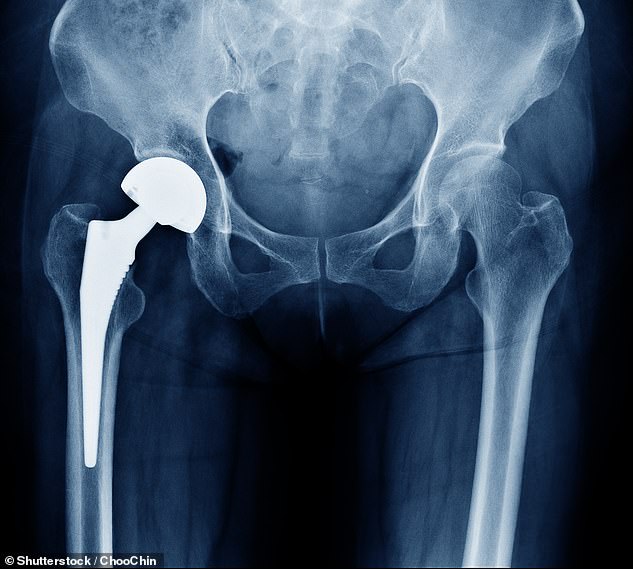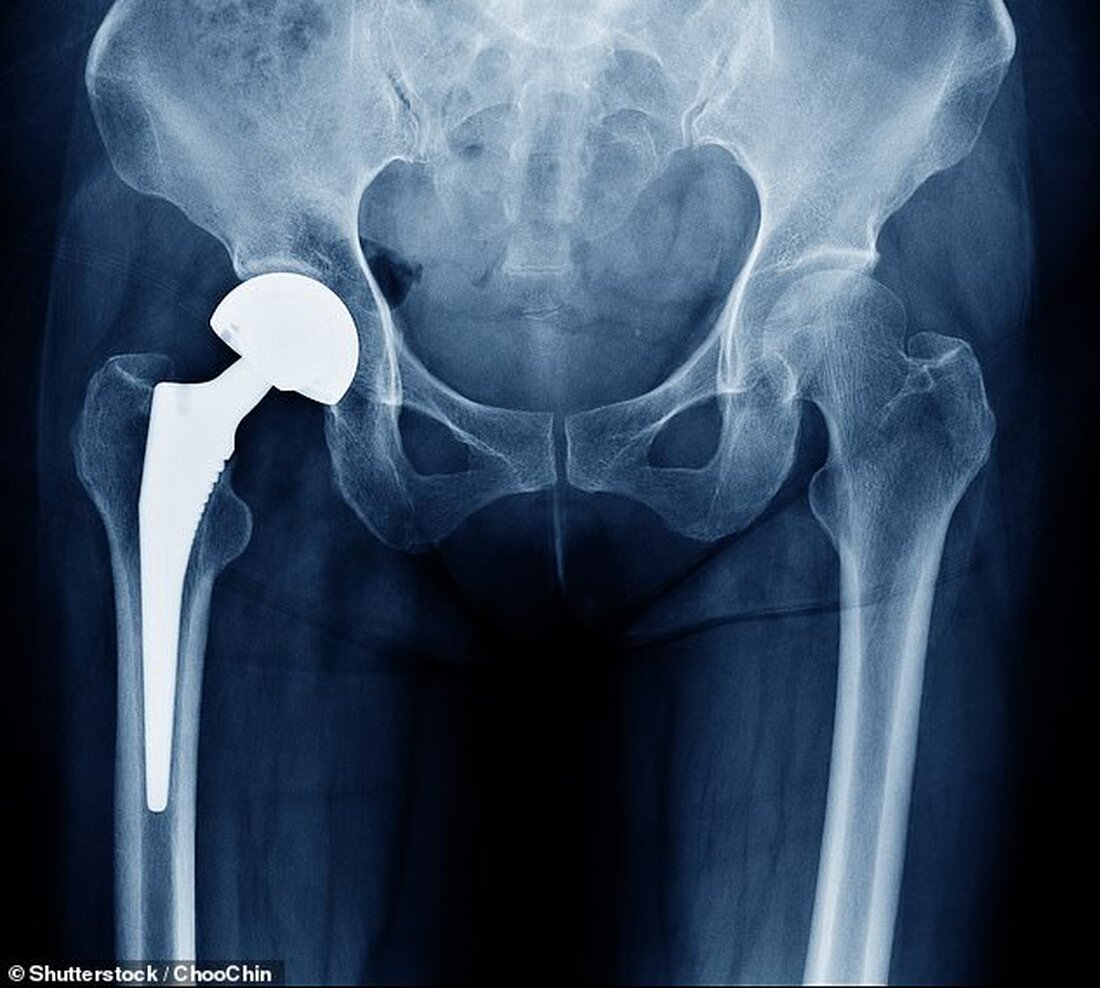A saliva swab before your hip replacement could predict whether the procedure will work.
British researchers have found that DNA signals lurking in saliva and blood samples are linked to an adverse reaction to materials in most joint implants.
Around 15 percent of Brits have these genetic traits, which cause the immune system to attack tissue around the material, causing pain and swelling.
Studies have long shown that around a fifth of people react badly to an artificial joint made of cobalt-chrome. But until now, experts didn't know why, meaning doctors couldn't tell whether or not a patient would react badly to their new joint.

British researchers have found that DNA signals lurking in saliva and blood samples are linked to an adverse reaction to materials in most joint implants. Around 15% of Brits have these genetic traits, which cause the immune system to attack tissue around the material, causing pain and swelling
In addition to discovering the genetic culprit, the Newcastle University research team has developed a testing system that can screen patients for the gene with about 90 percent accuracy.
In one study, more than 600 patients who had undergone joint replacement surgery in the last decade were tested with saliva swabs and blood tests.
A computer analyzed the data and revealed that the patients who experienced complications carried certain genes. The team believes they can use this testing system to identify who may be at risk.
Around ten percent of Brits will have joint replacement surgery during their lifetime. The procedure is often used to repair damage associated with arthritis or age-related wear and tear.
If the joint replacement is successful, it will last between 15 and 25 years.
For patients with a genetic sensitivity to cobalt-chromium, a second procedure using alternative materials is usually performed within months of the first.
Dr. David Langton, director of ExplantLab, a Newcastle-based organization that studies the links between genetics and the performance of medical devices who took part in the study, said: "There is little research into why joint replacements don't work in some patients. When a joint fails, it needs to be replaced and this poses a much greater risk of blood loss, infection and even death.
“Our findings are a big step towards giving patients more choice when choosing the type of joint implant and helping them make informed decisions about the associated risks.”

 Suche
Suche
 Mein Konto
Mein Konto

